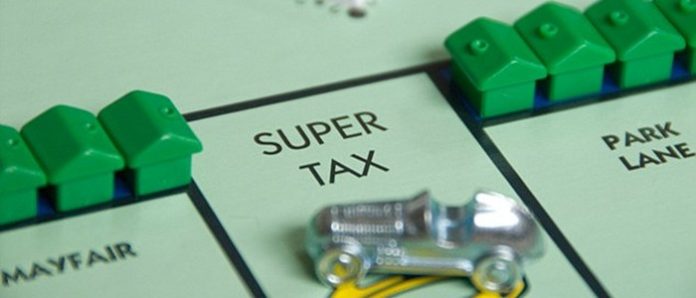Islamabad: Pakistan Banks Association on Thursday demanded the government to withdraw the super-tax that was enacted in 2015 after the recent passing of the Finance Bill 2017. In a letter addressed to the Federal Board of Revenue Chairman Mohammad Irshad, PBA requested them to scrap the super-tax.
The Super-Tax was implemented in 2015 to meet the expenditures of the armed forces during the Operation Zarb-e-Azb. It was supposed to generate funds for the rehabilitation of the population displaced by the operation and was implemented for only a year in the budget of the financial year (FY) 2014-15. But it was extended for another year in last year’s budget of 2016-17.
When this super-tax was introduced in financial year 2014-15, the government had imposed a special 4pc one-time levy on profits of banks and 3pc on all other companies and individuals with annual earnings of Rs500m or more.
The PBA said passing of the Finance Bill 2017 has ensured the extension of this super-tax for the third year in succession, and permits the Federal Board of Revenue (FBR) to accumulate Rs25b from high net worth individuals in FY 2017-18. With the promulgation of Finance Bill 2017 into law, the banks will have to collectively shoulder a burden of 39pc tax.
PBA suggested that the super-tax be withdrawn or should be brought at parity with the other corporate sectors who are paying 3pc. The letter stated “We wish to bring to your kind attention the following proposals in the federal budget 2017-18, seeking amendments in Income Tax Ordinance, 2001, which would be detrimental for the member banks of PBA.”




